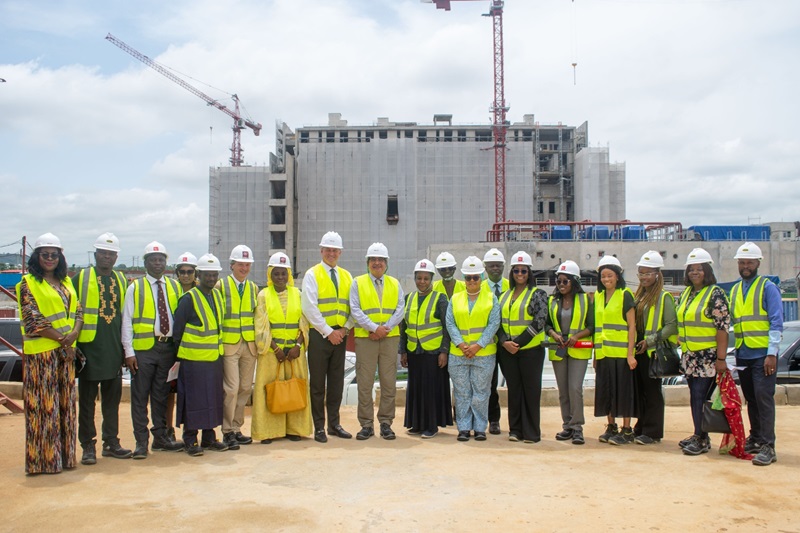The African Medical Centre of Excellence (AMCE) is set to unveil a state-of-the-art Cyclotron facility in June 2025 in Abuja, Federal Capital Territory (FCT), aimed at transforming healthcare in Nigeria and across West Africa.
This advanced Cyclotron facility will play a pivotal role in producing essential medical isotopes for advanced diagnostics and targeted therapies, ensuring a reliable local supply. It will primarily focus on conditions such as cancer, sickle cell disease, and cardiovascular issues, while also enhancing the diagnosis and treatment of other chronic non-communicable diseases.
According to Chief Executive Officer (CEO) Brian Deaver, the $250 million facility, which spans seven floors, is on track for completion, with all necessary infrastructure and equipment valued at 150,000 already procured. The facility is also meeting the certification requirements set by the Nigerian Nuclear Regulatory Commission (NNRC) at every statutory stage.
Deaver highlighted that the AMCE has established significant partnerships with key organizations, including the Nigerian National Petroleum Corporation (NNPCL) and the Bank of Industry, resulting in the project being oversubscribed and minimizing the likelihood of delays.
The project has already created 640 direct jobs and is expected to generate an additional 500 to 600 jobs over the next four years, with 90% of positions filled by local hires. Additionally, AMCE plans to launch a Medical School in partnership with Kings College, London, within the next 18 to 24 months, promoting knowledge transfer and enhancing local capacity.
Once operational, AMCE will have the capability to produce medical isotopes that can supply up to five hospitals simultaneously in the sub-region, a capacity that is currently unparalleled in Nigeria and the surrounding area.
Deaver emphasized that this cutting-edge nuclear medicine facility will significantly improve patient care by addressing treatment gaps for non-communicable diseases. He noted that it could help reduce the estimated $1 billion spent annually on medical tourism while establishing Nigeria as a medical hub for West Africa and the African continent.
During a recent media engagement, Deaver reiterated AMCE’s commitment to creating a self-sufficient and resilient healthcare system that provides solutions to regional healthcare challenges. “Our Cyclotron facility represents a transformative innovation in healthcare for Nigeria and Africa as a whole,” he said.
He added, “We are acutely aware of the pressing need to tackle the growing burden of diseases such as cancer, sickle cell disease, and cardiovascular conditions that impact millions in our communities. Our focus will not only improve healthcare outcomes but also enhance the quality of life for individuals and families throughout the region.”
AMCE’s mission is ambitious, aiming to deliver world-class, patient-centered care that bridges the treatment gap for non-communicable diseases in West Africa. The centre is designed to provide new and improved diagnostic and treatment options for Nigerians and patients across the region, thereby reversing the trend of medical tourism and empowering individuals to access high-quality healthcare in their communities.
Moreover, AMCE is committed to fostering intra-African trade and creating educational opportunities that enhance clinical training in West Africa. “By investing in local talent and resources, we can build a robust healthcare ecosystem that meets the needs of our population,” Deaver stated.
He also revealed that the AMCE Foundation has secured a $7 million donation to ensure equitable access to healthcare services for all Nigerians, regardless of their socio-economic status, thus bridging the financial gap for those in urgent need of care.
Additionally, AMCE is collaborating with Kings College, London, and Novartis to localize genome-specific medicines, tailoring treatments to African genetic profiles. This initiative aims to address the limitations of existing drugs that were primarily developed based on American and European genetic characteristics.
Yau Idris, Director General of the NNRC, expressed optimism that AMCE is poised to transform nuclear medicine in the West African sub-region. Represented by Fatima Ige, the agency’s Deputy General Manager, Idris conveyed confidence that AMCE would successfully meet the later stages of certification, having fulfilled the requirements for earlier stages.




